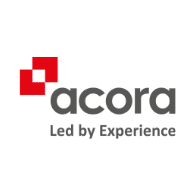Much loved by SMEs, Pegasus Opera has established a reputation for providing (relatively) low-cost accounting software. Indeed, Pegasus claim that 1 in 20 employees across the UK are paid using their software. Incredibly, Opera II was actually superseded by Opera 3 back in 2010. The reliability and stability of the system means that many businesses have successfully resisted Pegasus’ attempts to make them upgrade for 7 years.
A worrying time
This indefinite use is about to change as Pegasus has now withdrawn support for the venerable Opera II package. Businesses choosing to stick with the older system will no longer be able to obtain support or maintenance from Pegasus – unless they upgrade. For SMEs, this could be a terrifying prospect; what happens to their accounts if Opera II fails and Pegasus won’t help? Resellers, and to some degree Pegasus themselves, are presenting this as a no-choice situation – businesses must upgrade to Opera 3. Despite the inconvenience, this intervention may actually be a good thing, forcing senior managers to carefully consider their accounting, payroll and stock management needs, and their plans for the wider business.
Time to break free
Increasingly, organisations are talking about “digital transformation”, using technology to help them create new products, services and ways of working that allow them to better meet client needs. Applying new technology is essential to achieving these goals. Which begs the question – if you simply upgrade your existing accounts system, what do you actually gain? Pegasus Opera 3 is undeniably good for accounts, payroll and supply chain management – but it doesn’t cover all the bases. What about factors like sales processing, customer services and manufacturing? These functions must be performed by other systems, creating a disconnect in your data.
That disconnect is crucial – it is physically impossible to get a real-time view of all operations when you need to collate data from different systems first. And without a good level of insight, you will miss the more subtle opportunities for improvement that are hidden amongst your data. In reality, blindly upgrading to Pegasus Opera 3 could limit your options moving forward, ceding ground (and market share) to better-connected competitors.
The ERP difference
Enterprise Resource Planning – ERP – sounds big and scary, but it is a significant step up from using an accounts system to run other business processes. Microsoft Dynamics NAV for instance, is not an accounts system that has had additional functionality grafted in over time – it has always been about providing complete control of all your processes, including accounting.
With Microsoft Dynamics NAV, you can replace the now-defunct Opera II accounts system and the other tools you use to monitor and report on processes. With key operations available in a single software platform, you finally have access to the data you need to make truly informed strategic decisions. And dashboard views provide real-time insight into key metrics, allowing you to make operational changes quickly and effectively. Finally, your systems can be used to push the business forward, not simply maintain the status quo. Which is the risk you take if choosing Opera 3 to deliver the same limited insights you currently ‘enjoy’.
To learn more about your options after Opera II, and how to avoid making a success-limiting upgrade choice, please get in touch.
BROWSE SIMILAR TOPICS
Acora ArchivesASK A QUESTION
Don’t have time to call? Send your enquiry to the Acora team and we’ll get back to you quickly.

 The Acora Press Team
The Acora Press Team 
